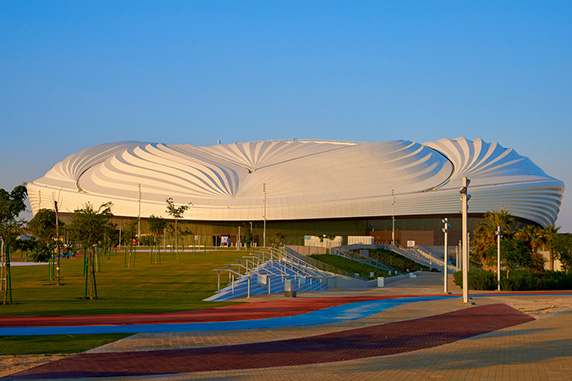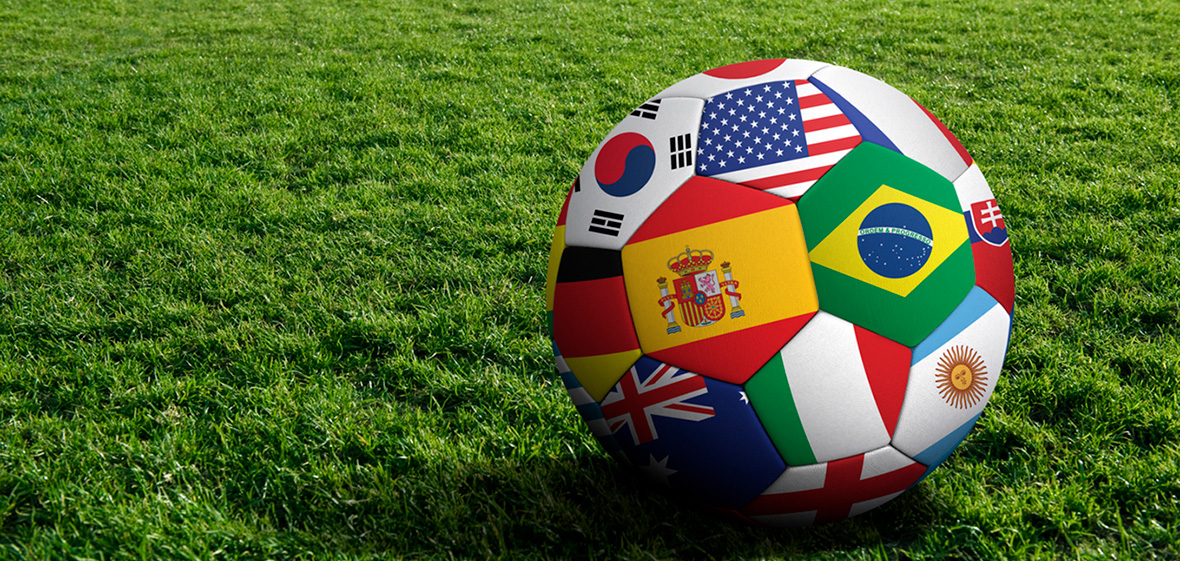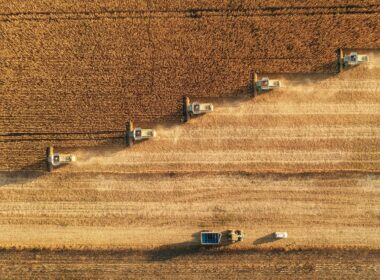With the lead-up to the Qatar-based World Cup mired in controversy, there's a mix of excitement and concern as the 2022 tournament kicks off.
Australia’s World Cup campaign begins tomorrow. At 6:00am AEDT, the Socceroos, always plucky but the perennial underdogs, face off against the might of the French national team – the current champion, and one of the favourites for this year’s tournament.
The buildup has, at least so far, been underwhelming. Soccer is a poor relation to the major sports in this country: to Aussie rules and rugby league in the winter, and cricket and tennis in the summer. Australians may play the game with the round ball more often than any others at an amateur level, but when it comes to the pros, soccer is a blip in our sporting landscape, outranked in terms of crowd figures, TV audiences and media attention.
And yet the FIFA World Cup is usually different: a quadrennial exception to the rule, evoking feelings unrivalled by those arising from the most dramatic moments in our ubiquitous local leagues. Even for those who swear allegiance to footy or rugby above any other deity, there’s something unique about how we felt after John Aloisi’s penalty in 2005, Tim Cahill’s volley against the Netherlands in Brazil, and Andrew Redmayne’s diving save earlier this year.
Nothing without its setting
We may come to feel similarly after kick-off tomorrow morning. But this time it’s no sure thing. The World Cup is nothing without its setting, which this year invokes a particularly sour taste.
Samantha Lewis and Vince Rugari are soccer writers for ABC Sport and The Sydney Morning Herald respectively. Both are in Qatar to cover the World Cup. Lewis has said she is “feeling a lot of different, conflicting things given the ethical and political questions surrounding this tournament.” Vugari writes: “everyone’s nice and helpful, facilities are great, all those boxes are ticked, but you just can’t escape the thought about the botched, corrupt process that won them the World Cup hosting rights, and the human cost since.”
‘You just can’t escape the thought about the botched process that won the World Cup hosting rights, and the human cost.’
The human cost is estimated to be a staggering several thousand lives – young migrant workers who came to Qatar to build the country’s World Cup infrastructure, and perished on the job.
The financial cost is about USD220 billion (including non-soccer infrastructure), over USD200 billion more than any other previous tournament.
The botched, corrupt process is one Australians have reason to remember. Our sport-obsessed nation spent $46 million on a 2022 FIFA World Cup bid, but received just one of a possible 22 votes. The tiny, sweltering Gulf nation of Qatar received 11 of those votes, in a process that was immediately, and has continued to be, tarnished by convincing allegations of bribery and corrupt quid pro quos.
For the infinitely wealthy nation – miniscule and little known – hosting the World Cup was an opportunity to assert its soft power, to “differentiate itself from stereotypical notions of an under-developed and war-torn Middle East, projecting an image of Qatar as an innovative technological leader and a peace-builder in the region,” according to the Middle East Policy Council.
For FIFA – the world’s most powerful sport governing body – selecting Qatar was an opportunity to move the centrality of the sport beyond Western Europe, and further its unrelenting pursuit of a truly global game.
Twelve years on, as the world focuses on the Arabian Peninsula for the next four weeks, it’s possible that both host country and governing body are regretting their decisions.

Soft power is unpredictable. While Qatar’s bid successfully increased its share of global attention, the microscope was revelatory in an undesirable way. Instead of praising a “modern, innovative, technological leader”, journalists and human rights organisations focused their attention on the country’s ‘Kafala system’ – the punitive and controlling arrangement for migrant workers, who paid exorbitant fees for the ‘right’ to work in Qatar before being stripped of their passports, unable to leave the country or change employer. The plight of these workers – many of whom lost their lives – has been the prevailing story of this year’s FIFA World Cup, along with revelations that the country routinely detains and abuses people who identify as LGBTQI.
Compelled to respond, Qatar has promised an ‘inclusive’ World Cup, and has recently abolished the Kafala system. Many would not know that several of Qatar’s neighbours including Saudi Arabia, Kuwait and Oman also use the Kafala system.
FIFA, meanwhile, has been embroiled in corruption allegations and criminal investigations for close to a decade. Many of the executives who influenced or oversaw the decision to award Qatar the World Cup have been arrested, permanently banned or suspended, or have resigned in disgrace. The governing body is yet to recover its reputation and remains a largely detested political organisation.
And so against this backdrop begins a month-long celebration of football, in a country that has never before qualified for the tournament.
To boycott or to be there?
For some hardliners, the choice is clear: boycott, stay away, don’t give any more oxygen to a corrupt abuser of human rights. But calls to boycott have been rare; this is not the Cold War.
Troubled though it may be, Qatar is purported to be one of the relatively progressive nations in the Arabian Gulf. The country has a particular beauty, and its people are reportedly friendly and welcoming. The tournament will be the last chance to see Lionel Messi on the world’s biggest stage. And a chance for us to see Australia attempt to win its first World Cup match in 12 years; to prove we belong with the best.
Many fans are staying home, but over a million are still expected. Journalists will be there in their thousands, promising to discuss ‘more than just football’, to shed light on the issues that define this tournament. But once the Socceroos’ campaign kicks off, it’s hard to imagine that politics will get much airtime.
Will the lacklustre buildup endure throughout the tournament? Or will the country unite behind the green and gold, as we so often do? We’ll likely know the answer after 6:00am tomorrow.
For some background on migrant worker issues and the construction of World Cup infrastructure in Qatar, read here




